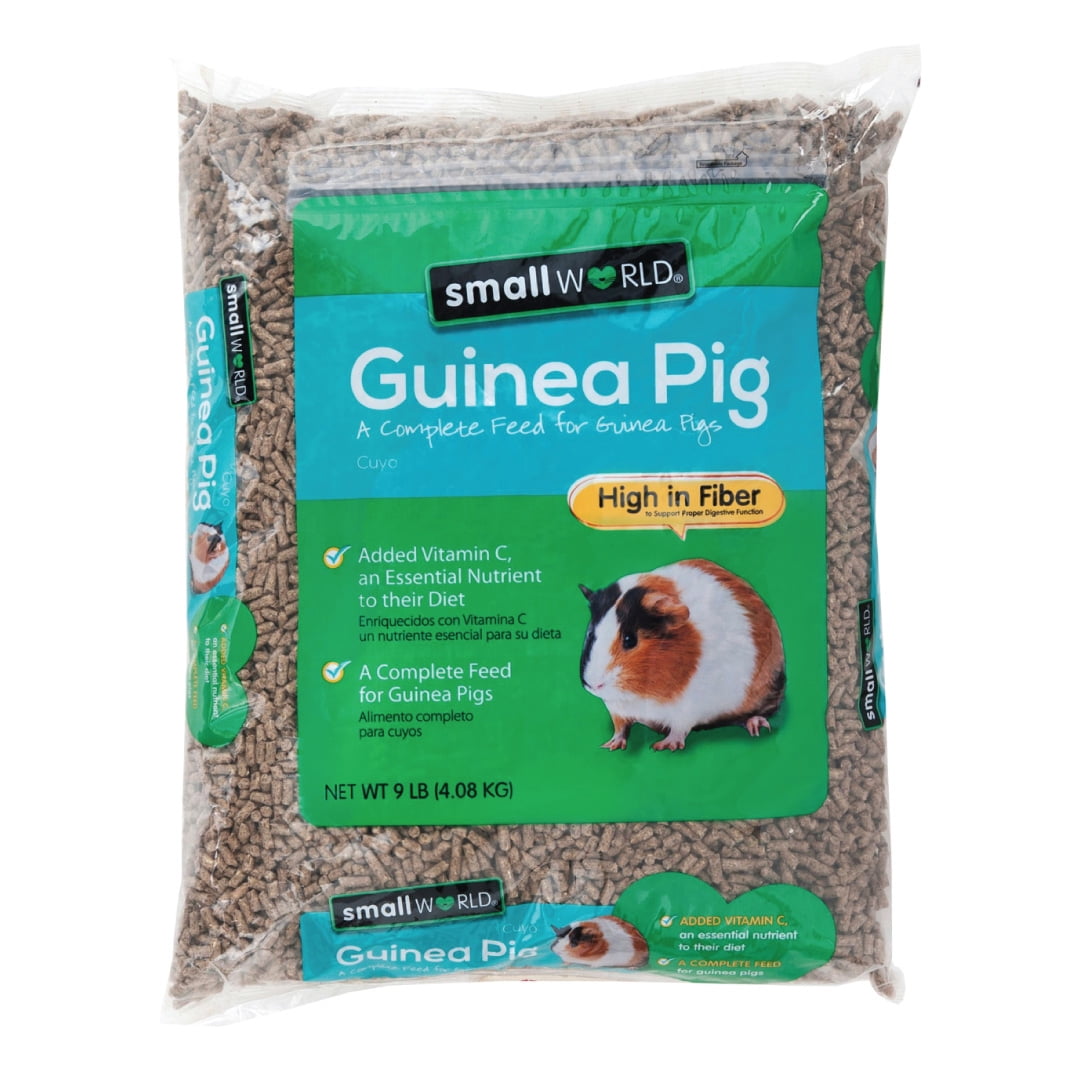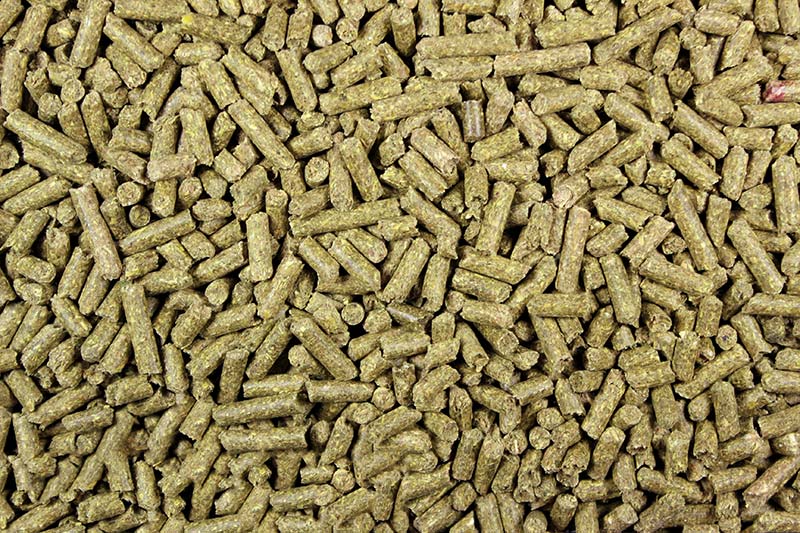
The Ultimate Guide to Natural Guinea Pig Pellets with Added Vitamin C: Ensuring a Healthy and Happy Cavy
Introduction:
Guinea pigs, also known as cavies, are beloved pets known for their charming personalities and adorable squeaks. As responsible pet owners, providing them with a balanced and nutritious diet is paramount to their health and well-being. One of the cornerstones of a guinea pig’s diet is high-quality pellets. However, not all pellets are created equal. Natural guinea pig pellets with added vitamin C are often considered the gold standard, offering a range of benefits that support a thriving cavy.
H1: Why Natural Guinea Pig Pellets Matter
In the world of pet food, "natural" signifies a commitment to ingredients derived from whole, unprocessed sources. When it comes to guinea pig pellets, this translates to several advantages:
- Reduced Artificial Additives: Natural pellets typically exclude artificial colors, flavors, and preservatives. These additives can sometimes cause digestive upset or allergic reactions in sensitive guinea pigs.
- Higher Nutrient Density: Natural ingredients often retain more of their original nutrients, providing your guinea pig with a more concentrated source of vitamins, minerals, and antioxidants.
- Improved Digestibility: Whole grains and plant-based ingredients in natural pellets are generally easier for guinea pigs to digest, leading to better nutrient absorption and fewer digestive issues.
- Better Palatability: While taste preferences vary, many guinea pigs find natural pellets more appealing due to their authentic flavors and textures.
H2: The Crucial Role of Vitamin C in Guinea Pig Health
Unlike many other mammals, guinea pigs cannot synthesize vitamin C (ascorbic acid) on their own. This means they rely entirely on their diet to obtain this essential nutrient. Vitamin C plays a vital role in numerous bodily functions:
- Collagen Synthesis: Vitamin C is crucial for the formation of collagen, a protein that provides structure to skin, bones, tendons, and ligaments. A deficiency can lead to weakened tissues and joint problems.
- Immune System Support: Vitamin C is a potent antioxidant that helps protect cells from damage and supports a healthy immune response. This is particularly important for guinea pigs, who are susceptible to respiratory infections and other illnesses.
- Wound Healing: Vitamin C is essential for proper wound healing. Guinea pigs with a deficiency may experience delayed healing or increased susceptibility to infections.
- Iron Absorption: Vitamin C enhances the absorption of iron from plant-based foods, helping to prevent anemia.
H3: Understanding Vitamin C Degradation in Pellets
While added vitamin C is a major benefit, it’s important to recognize that vitamin C is unstable and degrades over time, especially when exposed to air, light, and moisture. Here’s what you need to know:
- Manufacturing Process: The process of manufacturing pellets, which involves heat and pressure, can degrade some of the vitamin C content.
- Storage Conditions: Improper storage, such as leaving the pellet bag open or storing it in a humid environment, accelerates vitamin C degradation.
- Shelf Life: Vitamin C in pellets typically degrades significantly within a few months of opening the bag.
H2: Choosing the Right Natural Pellets with Added Vitamin C
Selecting the best pellets for your guinea pig requires careful consideration. Here are some key factors to keep in mind:
-
Ingredient List: Prioritize pellets with a short, clear ingredient list. The first ingredient should be a high-quality source of fiber, such as timothy hay or alfalfa meal (for young guinea pigs). Avoid pellets with excessive fillers like corn or soy.
-
Vitamin C Content: Check the guaranteed analysis on the label for the amount of vitamin C per serving. Aim for pellets that provide at least 25 mg of vitamin C per day.
-
Stabilized Vitamin C: Look for pellets that contain a stabilized form of vitamin C, such as L-ascorbyl-2-polyphosphate. This form is more resistant to degradation than regular ascorbic acid.
-
Freshness: Purchase pellets in smaller quantities to ensure freshness and minimize vitamin C loss. Check the expiration date and choose bags that have been recently manufactured.
-
Reputable Brand: Opt for pellets from reputable brands with a history of producing high-quality guinea pig food. Research the brand’s manufacturing practices and customer reviews.
-
Fiber Content: Ensure that the pellet has a high fiber content to aid in digestion.
-
No Artificial Additives: Ensure the pellets are free of artificial colors, flavors, and preservatives.
H3: Recommended Brands and Products
- Oxbow Garden Select Adult Guinea Pig Food:
- Made with timothy hay and a variety of garden vegetables.
- Contains a stabilized form of vitamin C.
- Free of artificial colors, flavors, and preservatives.
- Small Pet Select Guinea Pig Food Pellets:
- Timothy hay-based and fortified with essential vitamins and minerals.
- Uses a stabilized form of vitamin C for enhanced stability.
- Made with high-quality, natural ingredients.
- Kaytee Forti-Diet Pro Health Guinea Pig Food:
- Contains probiotics to support digestive health.
- Enriched with vitamin C and other essential nutrients.
- Available at most pet stores.
H2: Supplementing Vitamin C for Optimal Health
Even with high-quality pellets, it’s wise to supplement your guinea pig’s vitamin C intake through other sources:
- Fresh Vegetables: Offer a daily serving of vitamin C-rich vegetables like bell peppers, kale, parsley, and broccoli.
- Vitamin C Tablets or Drops: Administer a daily vitamin C supplement specifically formulated for guinea pigs. Follow the dosage instructions carefully.
- Liquid Vitamin C: Add liquid vitamin C to your guinea pig’s water. However, be aware that this can make the water taste unpleasant and reduce their water intake. Change the water daily to prevent bacterial growth.
H3: Vitamin C Dosage Guidelines
- Maintenance: Healthy adult guinea pigs typically need around 10-30 mg of vitamin C per day.
- Pregnancy and Illness: Pregnant or ill guinea pigs may require higher doses of vitamin C, up to 50-100 mg per day. Consult with your veterinarian for specific recommendations.
H2: Proper Storage and Handling of Pellets
To preserve the nutritional value of your guinea pig’s pellets, follow these storage guidelines:
- Airtight Container: Transfer the pellets to an airtight container after opening the bag.
- Cool, Dry Place: Store the container in a cool, dry place away from direct sunlight and moisture.
- Avoid Temperature Fluctuations: Avoid storing pellets in areas with extreme temperature fluctuations, such as near a stove or in an uninsulated garage.
- Discard Old Pellets: Discard any pellets that are past their expiration date or appear stale or moldy.
H2: Additional Tips for a Healthy Guinea Pig Diet
- Hay is Essential: Provide unlimited access to fresh timothy hay. Hay should make up the majority of your guinea pig’s diet, providing essential fiber for digestion and dental health.
- Fresh Water: Ensure your guinea pig always has access to clean, fresh water in a sipper bottle or bowl.
- Limited Treats: Offer treats like fruits and vegetables in moderation. Avoid sugary or processed treats, which can lead to health problems.
- Regular Vet Checkups: Schedule regular checkups with a veterinarian experienced in treating guinea pigs.
Conclusion:
Choosing natural guinea pig pellets with added vitamin C is an investment in your cavy’s long-term health and happiness. By understanding the importance of natural ingredients, the crucial role of vitamin C, and proper storage techniques, you can provide your guinea pig with a diet that supports a strong immune system, healthy tissues, and a vibrant life. Remember to supplement with fresh vegetables and monitor your guinea pig’s health closely. With your dedication and care, your guinea pig can thrive for many years to come.

